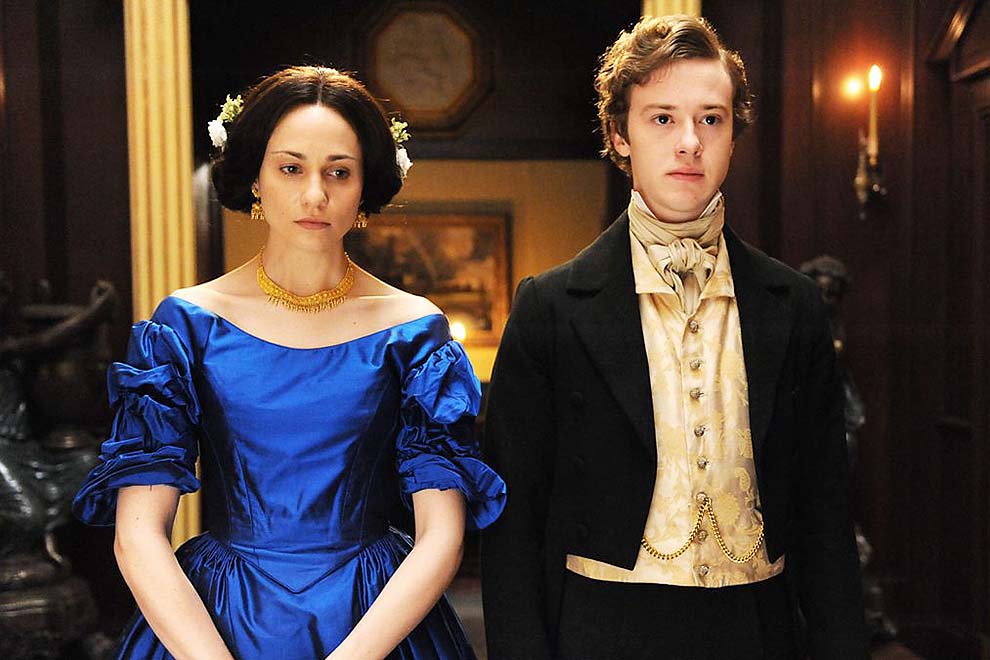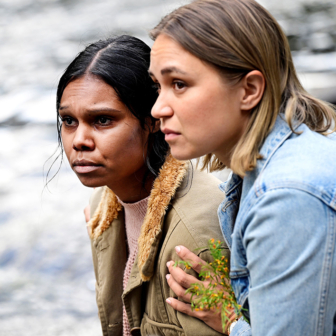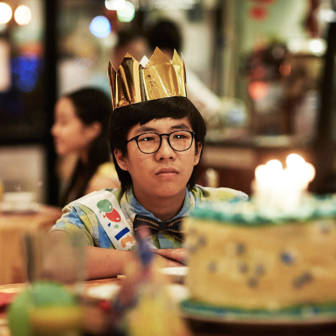Twenty-sixteen was quite a year. The worst year ever, according to a headline in the New Yorker, though the worst thing about it was what it augured for 2017. As the one-time Star Trek cast-member George Takei tweeted on 18 December, “Tomorrow, the electors vote. In related news, Voldemort seizes the Ministry, Nazgûl ride through the Shire, and Ned Stark is being beheaded.” But whatever the coming year holds, this is holiday time, and an opportunity to take refuge in some serious binge-watching.
If you have family around you and need something to appeal to a mix of generations, Dickensian might just do the trick. This twenty-part series was premiered with considerable fanfare on the BBC last Christmas, but snuck unheralded into the international market (on Apple TV) many months later. It deserves its fanfares.
Lead scriptwriter Tony Jordan, whose track record includes Hustle and Life on Mars, came up with the idea of using the characters from half a dozen Dickens novels to create a collaged prequel to those stories. The atmosphere of A Christmas Carol is conjured up in the snow-bound streets of Camden, where Scrooge has his counting house. Although the whole series is filmed in a studio set, no trouble was spared in the building of Michael Ralph’s Dickensian world, with its cobbled streets, gaslit shopfronts and ornate Victorian signage.
It’s a scenic prototype in which most Dickens characters seem to belong. Fagin and his boys from Oliver Twist pick the pockets of shoppers and sell their loot at the Old Curiosity Shop, where a childhood romance is developing between little Nell and the oldest son of Scrooge’s luckless assistant, Bob Cratchit. The upwardly mobile Mr and Mrs Bumble, yet to be given authority over the workhouse where Oliver Twist makes his legendary request for more gruel, exchange greetings in the street with Mrs Gamp, the gin-soaked home nurse from Martin Chuzzlewit.
Dickens, perhaps more than any other novelist, invites dramatisation. He was himself a talented actor, and travelled the country giving readings in which he “did the voices” of all the characters, infusing climactic scenes with a histrionic sense of immediacy. The theatricality that is such an obvious lure to actors and dramatists, though, can easily become overblown on the small screen. A good television actor is one who understands that the camera does half the work, and that over-accentuated expressions destroy the subtle collaboration.
Jordan and the directorial team responsible for Dickensian, led by Harry Bradbeer, seem to have formed a judicious consensus on keeping the theatrics toned down. The pitch is set by Stephen Rea, who plays the ubiquitous Inspector Bucket with deadpan intensity, pursuing his enquiries in a voice that never rises above an undertone.
The strategy of avoiding caricature also works well in other roles traditionally associated with the great British tradition of “character acting.” Anton Lesser, one of the best television supporting actors in the business (his credits during the past couple of years include Wolf Hall, Game of Thrones and The Hollow Crown) plays Fagin with subtlety and charm, making the villainous edge seem all the sharper when it gleams.
Pauline Collins as Mrs Gamp goes for an approach that won’t raise distracting comparisons with the consummate Dickensian caricaturist Miriam Margolyes, in whose one-woman show this character is the most exuberant presence. Collins plays down the grotesqueries in which Margolyes revels, offering instead a winsome figure, almost fading away in her gin-soaked aura. Instead of the florid coercive monologues, we have the talk of someone pissed as the proverbial newt, whose words slip-slide on the tongue and disappear into nothingness. It works a treat.
Since any single Dickens novel is a squirming tangle of plotlines, one of the challenges for Jordan and his writing team is to provide narrative arcs. One of these follows the fortunes of Miss Havisham, exploring the sequence of events leading up to her fateful wedding day, amid the ruins of which she will spend the rest of her life. Tuppence Middleton portrays her as a vibrant young woman who has recently inherited the family business and is keen to try her strengths as its new manager. Her confidence is in stark contrast to the incipient degeneracy of her younger brother, embittered that she has taken precedence over him in his father’s will and bent on revenge through the agency of his unscrupulous friend, Meriwether Compeyson.
For those who know the novel Great Expectations, Compeyson is a name that sends a chill up the spine. We never meet him on the page, but see the effects of his work. He has a catalytic impact on the lives of those with whom he becomes involved, ruining them so profoundly that no psychological recovery is possible. He’s the ultimate conman – charming, stylish and with a deft line in faux candour. Tom Weston-Jones captures all this, and is equally convincing in showing the brutality that readily emerges behind closed doors.
Arthur Havisham, played by Joseph Quinn, sees both sides of the Compeyson personality but is too immature and too far gone in addiction to stand up to him. The rapport between the two actors gives real dramatic force to their scenes together. Quinn, plucked out of drama school, brings a sophisticated emotional intelligence to his debut role. His striking resemblance to the boy poet Chatterton is exploited in tableaux that evoke the portraits of Chatterton on his death bed, stretched out on a disordered couch beneath the window, his face paler than his linen shirt.
Inspector Bucket weaves his way between the various groups of characters, intent on discovering who killed Scrooge’s partner, Jacob Marley. “Mr Marley was a bad man,” he confides to one witness. “His killer may well be a good one.” The law plays a strangely ambiguous role in all Dickens novels, and Bucket, as its agent, wears the ambiguity with a quiet fatalism. It is he who will later play a part in the undoing of Bleak House’s Lady Dedlock, in a case in which lives depend on the burial of secrets.
In Dickensian, we meet Honoria Dedlock as a young woman, passionate and ingenuous, who falls for a good-looking soldier without the means to support her. Her sister, meanwhile, schemes to save the wreckage of the family finances by marrying Honoria off to an ageing aristocrat. This is not going to end well, but those who want to see how it does end can follow Dickensian with a further binge-watchers’ indulgence in the BBC’s 2005 Bleak House, far and away the best of all televised Dickens series, featuring Gillian Anderson as the pathologically bored and psychologically paralysed Lady Dedlock. It’s worth treating yourself to the boxed set.
Sadly, though, there will be no sequel to Dickensian. For reasons that are hard to fathom, the BBC has decided not to continue the series.
If it was one of the earliest detective novels, Bleak House is no generic crime thriller, and presents a welcome break from the endless stir-fry of recycled ingredients in television crime dramas. So does The Secret Agent, a three-part BBC series based on Joseph Conrad’s 1907 novel. Here we have another story set in the densely populated streets of Victorian London, in which an unobtrusive police inspector weaves his way through a strange blend of incidents and motivations.
Conrad’s novel is based on actual events in 1886, when the Victorian era was past its prime and a new kind of consciousness was taking hold. As the title signals, it’s a story of espionage, and in some respects it is a precursor to the spy thriller, though it doesn’t conform to the expectations of the genre.
The story, as Conrad wrote it, is a study in psychological modernism, focusing on characters who struggle to survive in a society in which the stabilising elements of Victorian England – the home, local business and national identity – are being eaten way. Adolf Verloc, the secret agent of the title, manages a shop that deals in slightly shady merchandise, mainly pornography, and attracts a group of regular male customers. But this is a cover for interests of a darker shade: those who visit the shop are in fact a cabal of anarchists, and Verloc, in the pay of a government embassy, is informing on them.
We learn all this within the first twenty pages of the book. The act of terrorism around which the plot revolves occurs less than a third of the way through, and is the consequence not of brilliant scheming but of human error and converging circumstances. A confused youth, Verloc’s brother-in-law, is its only and unintended victim. In Conrad’s own interpretation, it was a banal manifestation of providence in which there was “not much to see.” Anyone planning a television adaptation is faced with some obvious challenges. If there is little or nothing to find out, where does the suspense come from?
The BBC team, led by scriptwriter Tony Marchant, took its cue from Hannah Arendt’s phrase “the banality of evil,” convinced that the story has a new resonance in an age in which apparently random acts of terror are an increasingly familiar fact of life in major cities. So this is not a spy thriller, but a story of cultural dissonance and psychological breakdown that reaches its climax as a domestic melodrama. It is made to work through impeccable casting, focusing with growing intensity on the trio of Verloc, his wife Winnie, and his intellectually disabled brother-in-law Stevie.
Charlie Hamblett plays the impulsive Stevie with unwavering behavioural accuracy, and injects an element of lightness into an otherwise relentlessly sombre emotional landscape. Toby Jones gives a finely judged performance as Verloc, a man trying to hang on not so much to his reason as to his reasonableness after he has unwittingly committed the most appalling act of homicide. Vicky McClure as Winnie doesn’t have the option of taking refuge in subtlety, as the storyline takes her into the risky terrain of melodrama.
Verloc’s determination to hold to what is reasonable, in himself and his life, is precisely what drives her over the edge, in a spiral of grief and outrage that culminates in the anarchy of complete psychological breakdown. Leaning across her kitchen table and staring into the face of the camera, she takes in the news of her brother’s death in a long unedited shot. There is a sense of reactions beyond control or definition forming wordlessly, an explosion waiting to happen. McClure established a distinctive capacity to ride the psychological undercurrents of the drama in the crime series Line of Duty. Here, she rises to the challenge as they surface and break. It’s a tour de force.
The Secret Agent may not be to everyone’s taste. It may disappoint viewers who are lured by the title into expecting something like a historical John le Carré. But television drama easily becomes trapped in generic frameworks. Having tried to plough my way through Trapped and Midnight Sun, the two Nordic noir series currently on offer from SBS, I got to a point where Candy Crush Saga on the iPad seemed to promise better entertainment. Well-acted and scripted as they are, every scene seems to be a replay of something you’ve seen before, in Fortitude, The Killing or The Bridge. Even murder can get boring, and the more it is dressed up in ritual and sadism, the less it has to offer in terms of genuine narrative suspense.
Crimes and misdemeanours take much more various forms in the literary tradition, and it’s worth taking some risks with the ratings to bring those into the repertoire of television drama. •




